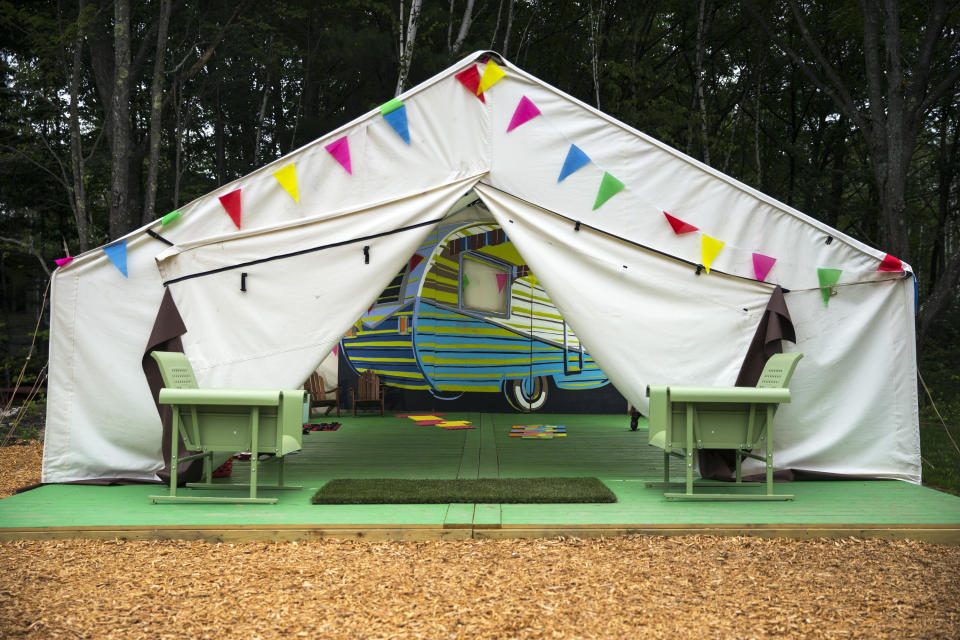Americans are ditching hotels in major cities for waterfront cabins this Labor Day weekend
The Labor Day weekend typically kicks off a fall season full of holiday travel. This year, amid the coronavirus pandemic, Americans are fleeing the city and seeking refuge in more remote areas or deciding not to make a trip at all. Given the uncertainty, AAA, known for its travel forecasts, has not made any predictions ahead of the holiday weekend.
Hotel bookings are down 66% compared to this time last year, according to a new report from the American Hotel and Lodging Association (AHLA). And urban hotels have been hit the hardest, with an occupancy rate of just 38%, compared to the overall average of 50%. While the alternatives to hotels, like Airbnb, are also struggling, they have been well-positioned to weather the coronavirus crisis.
Cottages, cabins, barns, huts, tiny homes and treehouses have seen insatiable demand as travelers thirst for a change of scenery, according to Airbnb. “Meanwhile, high-density urban centers now make up approximately 20% of Labor Day trips this year, dropping from 40% over the same weekend in 2019,” the company wrote in a blog post this week.

While Airbnb reported second quarter revenue declined 67% year-over-year to $335 million on $400 million in losses, there’s hope for the company, which just confidentially filed to go public last month. Homeowners have cropped up throughout the country, trying to find new ways to make money amid layoffs, furloughs and pay cuts.
Over the last six months, Airbnb said more than 200,000 new hosts have had their first guests. And unsurprisingly, more remote areas accounted for 30% of booked trips this holiday weekend – almost double the share compared to last year. Nearby stays within 300 miles from home are the most popular with bookings, though searches for international locations are increasing, indicating Americans are itching to go abroad.
Among the top trending U.S. destinations this weekend include classic summer vacation spots with easy access to bodies of water. Hilton Head Island and Charleston, S.C.. Big Bear Lake and Palm Springs, Calif., Lake Havasu City, Ariz., Scranton, Penn., Orange Beach, Ala., Pigeon Forge, Tenn., and Fredericksburg, Texas.

In contrast, major metropolitan areas heavily rely on business travel, which has plummeted to near zero for the foreseeable future. According to AHLA, the 10 major markets that have been most negatively affected by COVID-19 are Oahu, Hawaii., Orlando, Fla., Boston, Mass., Miami, Fla., Minneapolis, Minn., Chicago, Ill., Seattle, Wash., New York, N.Y., Anaheim, Calif., and San Francisco, Calif. Americans, who have planned getaways for this Labor Day weekend, are opting for less populated towns to recharge.
During this global health crisis, working from home has blurred into living at work for many Americans, but the concept of vacation had been evolving prior to the pandemic. More Americans were choosing to tack on an extra day to their weekend rather than taking a proper vacation. In fact, a 2019 survey from Cornerstone found 87% of workers believe three-day weekends are better for stress relief than weeklong excursions.
Melody Hahm is Yahoo Finance’s West Coast correspondent, covering entrepreneurship, technology and culture. Follow her on Twitter @melodyhahm.
Read more:

 Yahoo Finance
Yahoo Finance 